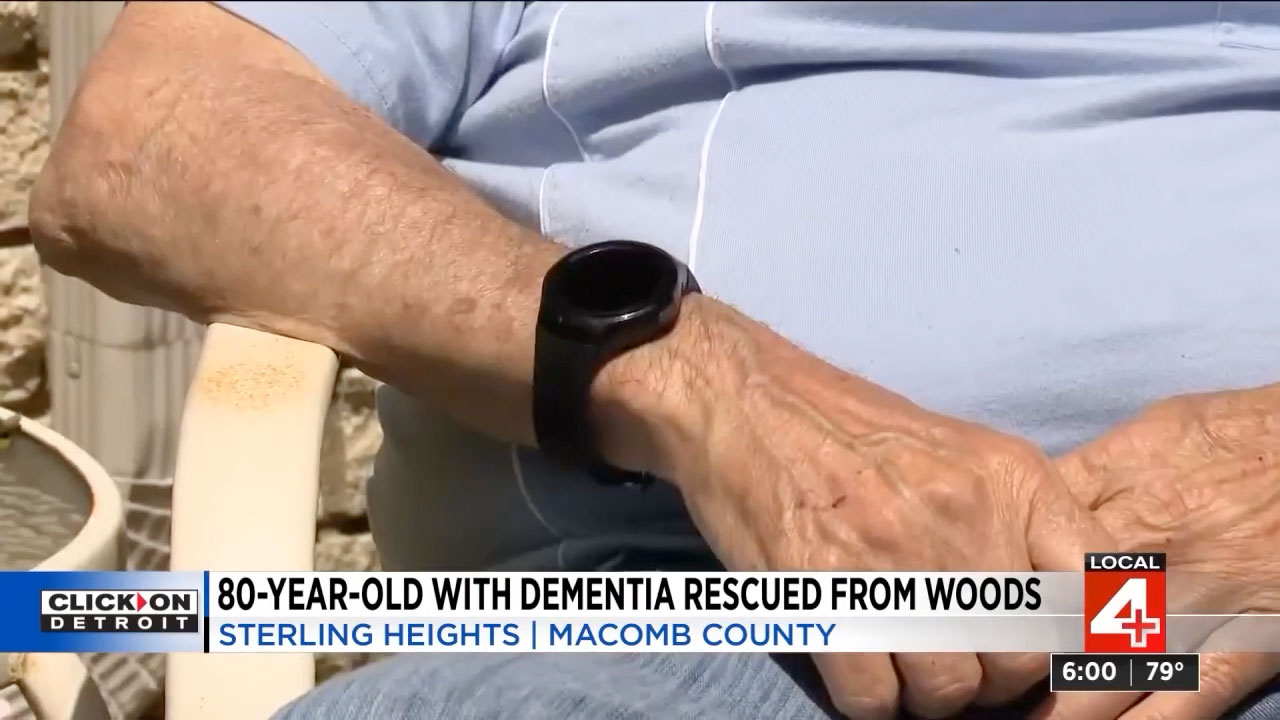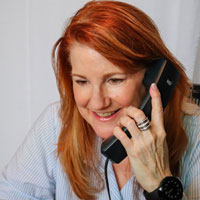
Sep 06, 2024
How High Tech Partnered with Human’s Best Friend to Help Police Find a Man with Dementia
60% of Alzheimer’s Adults Wander But Tech Can Change a Possible Tragic Ending to a Happy One
More than 60% of dementia adults wander and 9 in 10 will die if not found within the first 24 hours according to the Alzheimer’s Association and the International Association of Chiefs of Police (IACP).1,2 Thankfully, these tragedies can be avoided.
A recent news story highlighted how a combination of high-tech GPS technology found in the Theora Connect™ smartwatch, coupled with the expert tracking ability of the local Sterling Heights, MI police K9 unit, found an 80-year-old man with dementia who had wandered far from home.
When Delores Stone awoke on July 19, she realized her husband, Tom who has Alzheimer’s, was nowhere to be found. She jumped in her car and using the Theora® Link Pro app on her phone tracked the location of her husband in a nearby wooded area and called local police. Tom had never wandered to this location before.
The police sent out officers with a K9 unit and a drone to try to find Tom in the tall, dense brush about 1.5 miles from his home. With some minor scratches and scraps from the woods, the K9 unit found Tom and he was delivered home to Delores safe and sound within 90 minutes of his disappearance. This partnership of high tech, human intervention and man’s best friend (trusted police dog) – came together to save a life and made the high tech + high touch partnership heroes for the day.
How Theora Care is Creating More Independence for Older Adults
Today, more than 7 million adults have Alzheimer’s – a number that will grow to 13 million by 2050. Most older adults want to stay living in their home as long as possible and even adults with dementia can live relatively independently at home with the help of technology. Although issues such as wandering, loss of balance and motor control that can lead to falls can be challenging, adults with Alzheimer’s do not want to become prisoners in their own home – they still want their independence and family caregivers want to ensure their dignity while keeping them safe to maximize their quality of life.
This is where the situational awareness technology of Theora Care gives older adults their freedom, and their family caregivers peace of mind. While many smartwatches may include GPS technology or falls detection, Theora Rhythms™, the proprietary next generation artificial intelligence (AI) and neural network technology that is included in the Theora Connect smart wearable, delivers more accurate and personalized information to the user and their family caregiver. Family caregivers download the Theora Connect app on their phone to monitor their loved one’s activities, location and safety and always be connected to them. Many adults with Alzheimer’s try to remove a wearable device but the Theora Connect watch has an optional locking clasp that only a caregiver can remove, so a lost loved one can be easily found.
“We have built the most sophisticated next generation AI and neural networking technology into our Theora Connect smartwatch that delivers beyond what our competitors can do to provide independent living for both active and adults living with Alzheimer’s,” said Stephen Popovich, President and CEO of Theora Care. “As a lifelong engineer and tech pioneer, my passion is creating tools and products that help deliver better quality of life for our customers. When I hear stories like the Stones’ in Detroit, and how law enforcement heroes were helped by our technology, it makes everything worthwhile.”
Saving Lives and Police Budgets While Also Giving Caregivers More Peace of Mind
The situational awareness benefit of Theora Care is key to helping law enforcement recover an adult who is lost or who has wandered. In the past, police have deployed officers to try to find a lost loved one with Alzheimer’s by searching the local area or checking places they may return to such as a former family home. However, this can take hours, putting the Alzheimer’s adult at risk and taking up valuable time and resources for local police. A 2017 report by the International Association of Chiefs of Police (IACP)2 estimated that each search and recovery effort by police to locate an Alzheimer’s adult who has wandered costs $13,500. With more older adults being diagnosed with dementia, these costs can add up for local police. Theora Care helps cut down costly time from hours or days to minutes.
But the toll is not just financial, it is emotional for the family.
Referring to the wooded area where Tom was eventually found, his wife Delores told a local reporter from the WDIV NBC-TV affiliate station in Detroit who covered the heroic rescue, “But if it hadn’t been for the tracker, none of us would have looked back there.”
The GPS tracking technology in the Theora Care watch can typically pinpoint a wearer’s location within 15 feet. However dense foliage and vegetation, as in Tom’s case, can make finding them more challenging. This is where the trusted “nose” of the K9 tracker came in and the dog was able to flush out Tom in the tall brush. It took both high tech and human/canine expertise to recover Tom faster than if each entity was working on its own.
A 2022 U.S. News & World Report survey found 97% of adult children felt relief knowing their older parent had some type of personal emergency response system – like a smart wearable with GPS.3
For Delores, who after 55 years of marriage, says she was just happy to have her husband home again. She told the NBC reporter, “Everyone who has a loved one with dementia should get a [Theora Connect] tracker.”
Sources:
WDIV NBC-TV affiliate in Detroit, MI first reported this story on July 19, 2024
References:
1 Alzheimer’s Facts & Figures Report 2024. Retrieved July, 2024: https://www.alz.org/alzheimers-dementia/facts-figures
2 International Association of Chiefs of Police (IACP) Guide to Law Enforcement on Voluntary Registry programs for Vulnerable Populations (2017)
3 U.S. News & World Report “Senior Wellness & Safety Survey” (November, 2022). Retrieved from: https://www.usnews.com/360-reviews/services/senior-safety-connectedness-survey

